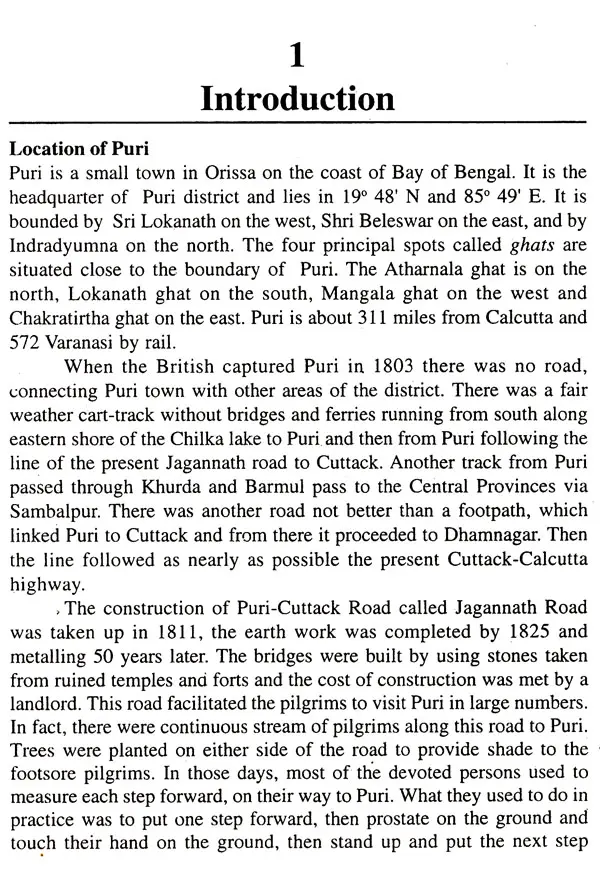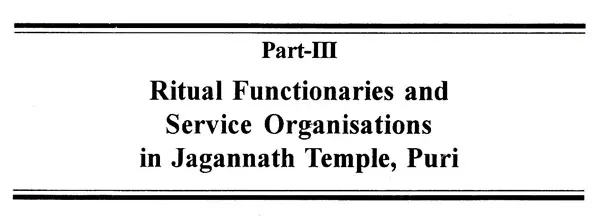
Sacred Complex of Orissa (Study of Three Major Aspects of the Sacred Complex)
Book Specification
| Item Code: | UAN796 |
| Author: | Dr. Nityananda Patnaik |
| Publisher: | Gyan Publishing House, New Delhi |
| Language: | English |
| Edition: | 2000 |
| ISBN: | 8121206804 |
| Pages: | 365 |
| Cover: | HARDCOVER |
| Other Details | 8.80 X 5.80 inch |
| Weight | 620 gm |
Book Description
As Puri has become the most important pilgrim center, many Sadhus and Sanyasis visit it and have their own places of abode which have been developed into monasteries. With the growing ramification and collaboration in ritual services at the Jagannath Temple many ritual functionaries are appointed to serve Lord Jagannath. Thus, Puri has grown into a center of Sacred Complex with its sacred institutions spread in its hinterland.
In fact, the Sacred Complex comprises the following:
1. Sacred Geography of Puri,
2. Gajapati Rajas and Lord Jagannath Temple,
3. Ritual functionaries,
4. Monastic Order,
5. Brahmin Sasan Villages,
6. Minor Rulers of Feudatory States,
7. Pilgrims, Public and Government.
These aspects are closely related and dislocation in any of them has severe repercussions throughout the whole nexus.
This study of the Sacred Complex highlights the changes which have taken place in recent times and further, this study has implications for broader enquiries into some of the processes of secularization of modern Hinduism.
In course of time from very simple Sebapuja the rituals became ramified and were observed in the most elaborate form with Sebakas multiplying in large number and wealth in the forms of both movable and immovable properties grown beyond any imagination under the patronage of the rulers of different dynasties particularly the Gajapati rulers. The deity assumed such importance that it became the State deity and the rulers considered the deity as the emperor of the State and they themselves as its sebakas. The god-king relationship was so intimate and divine that people considered the Raja as Thakur Raja (god-king) or Chalanti Vishnu (mobile Vishnu).
With growing importance of the Jagannath cult under the royal patronage various institutions and organizations came up and got themselves integrated to form a Sacred Complex. The major interlinked aspects are the monasteries of various sects, ritual functionaries of various categories, Brahmin settlements or Sasan villages. Similar organizations came up as an integral part of the Jagannath Temple complex, which grew up in feudatory states under the patronage of minor chiefs who were subordinate to the Gajapati rajas.
Puri became a famous pilgrim centre and thousands of pilgrims coming from different parts of the country and also from abroad visit Puri on festive occasions particularly during car festival. To accommodate the pilgrims many dharamasalas, (pilgrim rest-houses) have come up in the town. Many hotels have also come up in the town particularly in the seashore for the visitors and tourists to stay and spend time at Puri. The chart showing the institutional and organizational interlinkage and the broad outline of the Sacred Complex follows.
**Contents and Sample Pages**























